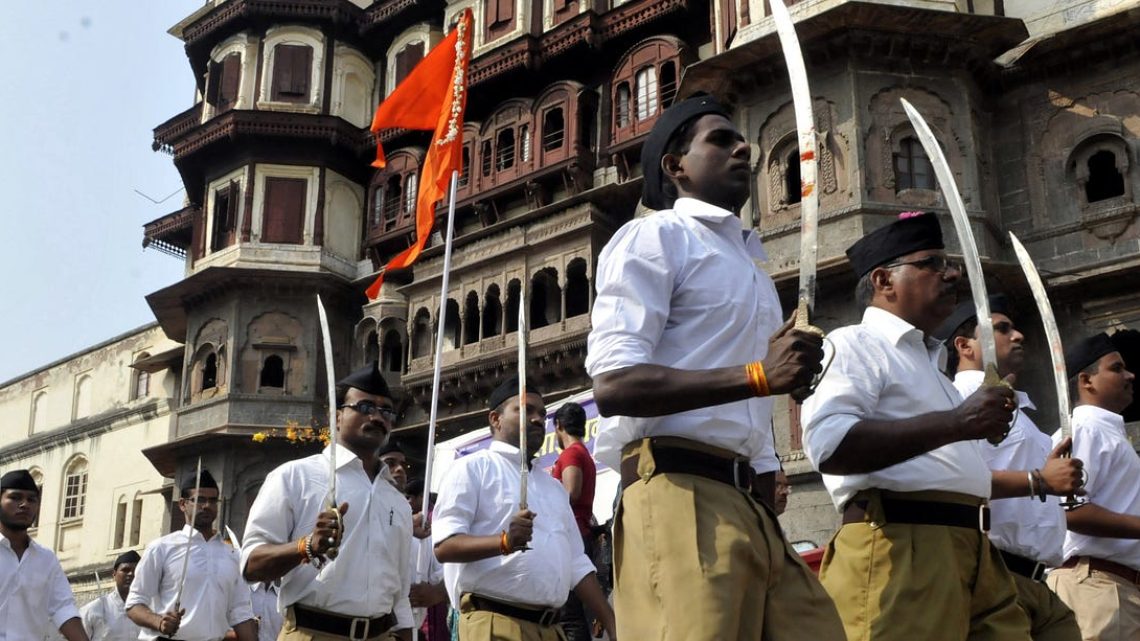
The Global Effect of Hindu Extremism Sponsored By BJP
August 15, 2024Since the September 11 attacks, global attention has fixated on extremism from Muslim regions. Yet, rising Hindu extremism in India is an underreported issue. This extremism often has backing from factions within the Indian government, notably the Bharatiya Janata Party (BJP). The BJP’s influence extends beyond India, affecting societies worldwide through the Indian diaspora.
The Indian diaspora, the largest globally with around 18 million people, wields significant economic and political power. This community is especially prominent in countries like the U.S., U.K., Australia, Europe, and the Middle East, where they hold key roles in business, academia, and politics.
Indian immigrants bring diverse skills and a readiness to work for lower wages. This influx intensifies competition for local jobs, particularly in IT, healthcare, and academia. Native workers face wage stagnation due to the increased labor supply and lower wage expectations from immigrants.
Hindu immigrant groups often form tight economic networks that favor hiring within their own community. This can lead to trade cartels that stifle competition and disadvantage local businesses. Such practices can create resentment among native populations and disrupt market dynamics.
On January 24, 2023, Hindenburg Research exposed Gautam Adani for stock manipulation and accounting fraud. Adani, once the third-richest person globally, was linked to fraudulent practices through offshore shell companies. The scandal led to a significant drop in Adani’s wealth and market value, highlighting the dark side of global business influence.
The Indian diaspora is also gaining political clout. In the U.S., Vice President Kamala Harris represents this growing presence, while Rishi Sunak serves as Prime Minister in the U.K. This political influence reflects the diaspora’s expanding role.
Indian culture, including films and cuisine, is increasingly popular worldwide. The BJP leverages this cultural influence to promote its nationalist agenda. The establishment of Indian temples abroad, as seen in the UAE, Bahrain, and Russia, underscores a shift towards more overt political activism that can clash with local values.
The BJP actively engages with the diaspora through events like Pravasi Bharatiya Divas. These events aim to strengthen support among overseas Indians and promote India’s economic and cultural interests globally.
Under Prime Minister Narendra Modi, the BJP has pursued aggressive economic policies to boost India’s global trade status. These policies include strengthening ties with multinational corporations and utilizing the diaspora for economic opportunities. Critics argue that these efforts sometimes favor national loyalty over merit.
Historical examples, such as the Ismaili Assassins, show how strategic influence can achieve political goals. Modern instances, like the assassination plot against Sikh separatist Gurpatwant Singh Pannun, reveal India’s readiness to extend its influence beyond borders.
Recent espionage incidents involving Indian intelligence agents, like those expelled from Australia, highlight concerns over India’s global operations. Such activities include attempts to steal sensitive information and recruit foreign officials.
The BJP’s use of the diaspora to advance its nationalist agenda poses risks to democratic values and cultural diversity in host countries. By leveraging economic and political influence, the BJP challenges multiculturalism in the U.S., Europe, Australia, and the Middle East.
Understanding the BJP’s tactics and the global impact of Hindu extremism is crucial. By examining historical parallels and the BJP’s strategies, policymakers and citizens can better safeguard democratic principles and cultural diversity.

